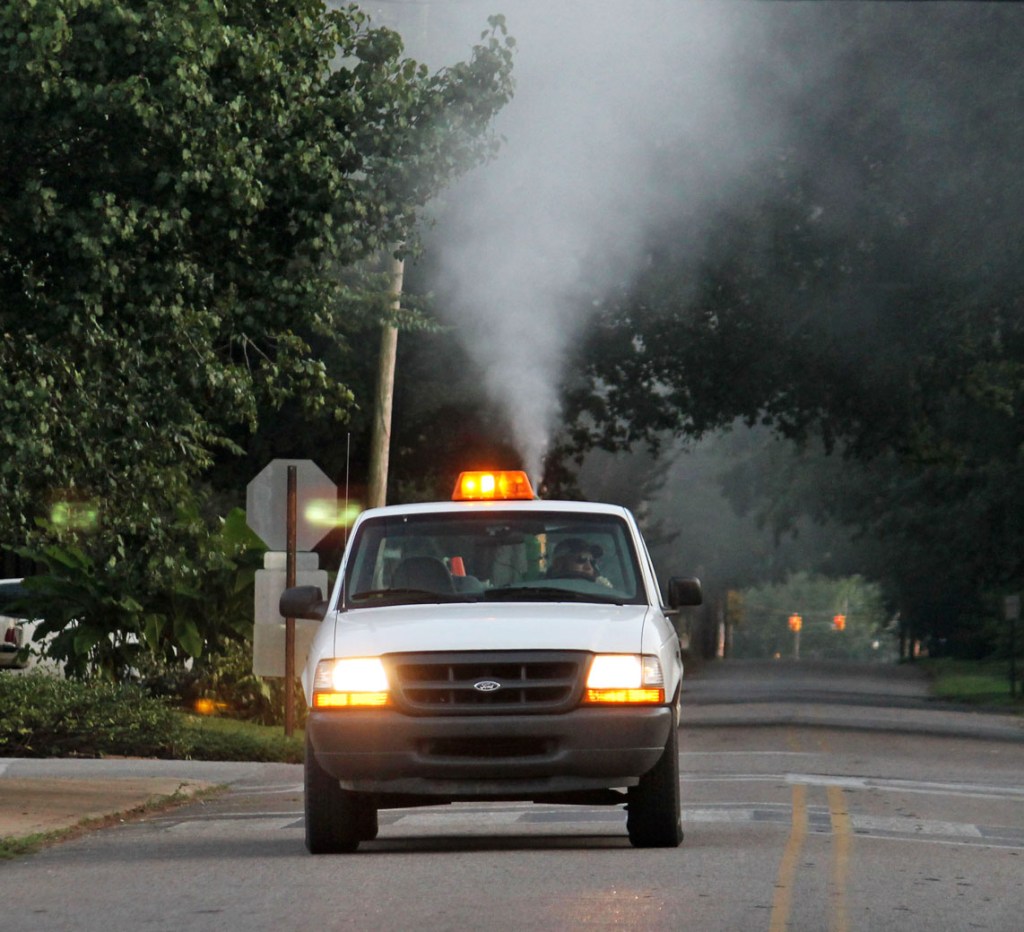So long, suckers
Published 5:30 am Tuesday, July 15, 2014

- Mosquito spraying by the city of Athens Public Works Department is underway on Monday, Tuesday and Wednesday evenings where needed and when weather permits. Residents are asked to reduce sources of standing water, which can be potential mosquito breeding grounds.
Summertime can be a dreadful experience for those who feel like they are a feast for mosquitoes, but a city official shared his tips and strategies for managing the pests.
For three nights a week, the City of Athens sends two trucks through the streets to deter mosquitoes with a chemical insecticide.
The annual program involves a weekly inspection to determine if spraying is necessary.
“We haven’t really had a problem getting justification this year,” said Brad Gee of Athens Street Department.
Trucks go out every Monday, Tuesday and Wednesday to spread a chemical known to be toxic to mosquitoes, Gee said.
“We try to cover the entire city limits in three nights,” Gee said. “Hopefully we can get (mosquito populations) down to just being a nuisance.”
Some city residents have expressed misgivings about a pickup truck moving through town shooting a strange mist through the air, but Gee said the chemical is harmless to humans to animals and harmless insects, including honeybees.
“It really only harms the mosquitoes,” he said. “It’s not like we’re out there spraying the plague. If it was harmful, they wouldn’t let us spray it.”
The spray is a compound called Kontrol 30-30. The “30-30” part is a mixture of 30 percent permethrin and 30 percent piperonyl butoxide, and the remaining 40 percent is an inert oil, Gee said. It’s a compound commonly used by cities and municipalities across the state.
“It’s probably the most common that anyone would use,” he said.
The reason, he explained, was that the formula has an extremely low toxicity through the skin and mouth of humans. In a 55-gallon drum, it boils down to less than 5 percent actual pesticide, he said.
The benefits of using the spray outweigh the risks and people’s personal preferences, Gee said.
“I’d rather you not like the smell than somebody have West Nile,” he said.
In any case, spray truck drivers are required by the state to carry an informational sheet detailing what they’re carrying. Gee said anyone is welcome to ask a driver to see the sheet or call the city and speak to him about the spray.
The street department also responds to calls if residents are experiencing an outbreak. Sometimes a standing pool of water has stagnated on a property or wooded area, allowing mosquitoes to breed, Gee said.
In that instance, workers can put a tablet in the water that emits a chemical that keeps mosquito larvae from hatching but allows animals to drink without getting sick.
To reduce mosquito populations at home, make sure birdbaths and pet watering bowls are scrubbed and replenished daily, said Chris Becker of the Lauderdale County Extension Office.
Becker teaches and researches ways to control insect populations. Standing water is okay, he said, just as long as it’s not left to stagnate. Children’s pools shouldn’t be left filled for extended periods and gutters need to be kept clear so water can drain properly. Any container should be closed or discarded to prevent water from collecting.
Homeowners can plant citronella and keep their yards and shrubbery trimmed to limit the numbers of bad mosquitoes, Becker said.
An organic insecticide called a ‘mosquito dunk’ can be purchased at most brand-name hardware stores and placed into swimming pools or rain barrels to keep mosquito larvae from maturing. Mineral or vegetable oil can also be placed in a water container to keep the bugs away, Becker said.
For more information on mosquito prevention or Athens’ spraying program, contact Brad Gee at 256-262-1415.
Becker and other scientists will host a free Webinar on mosquito prevention at 2 p.m. on Friday, Aug. 1. For more information, visit https://learn.extension.org/events/1373#.U8RGANm9Kc0.





